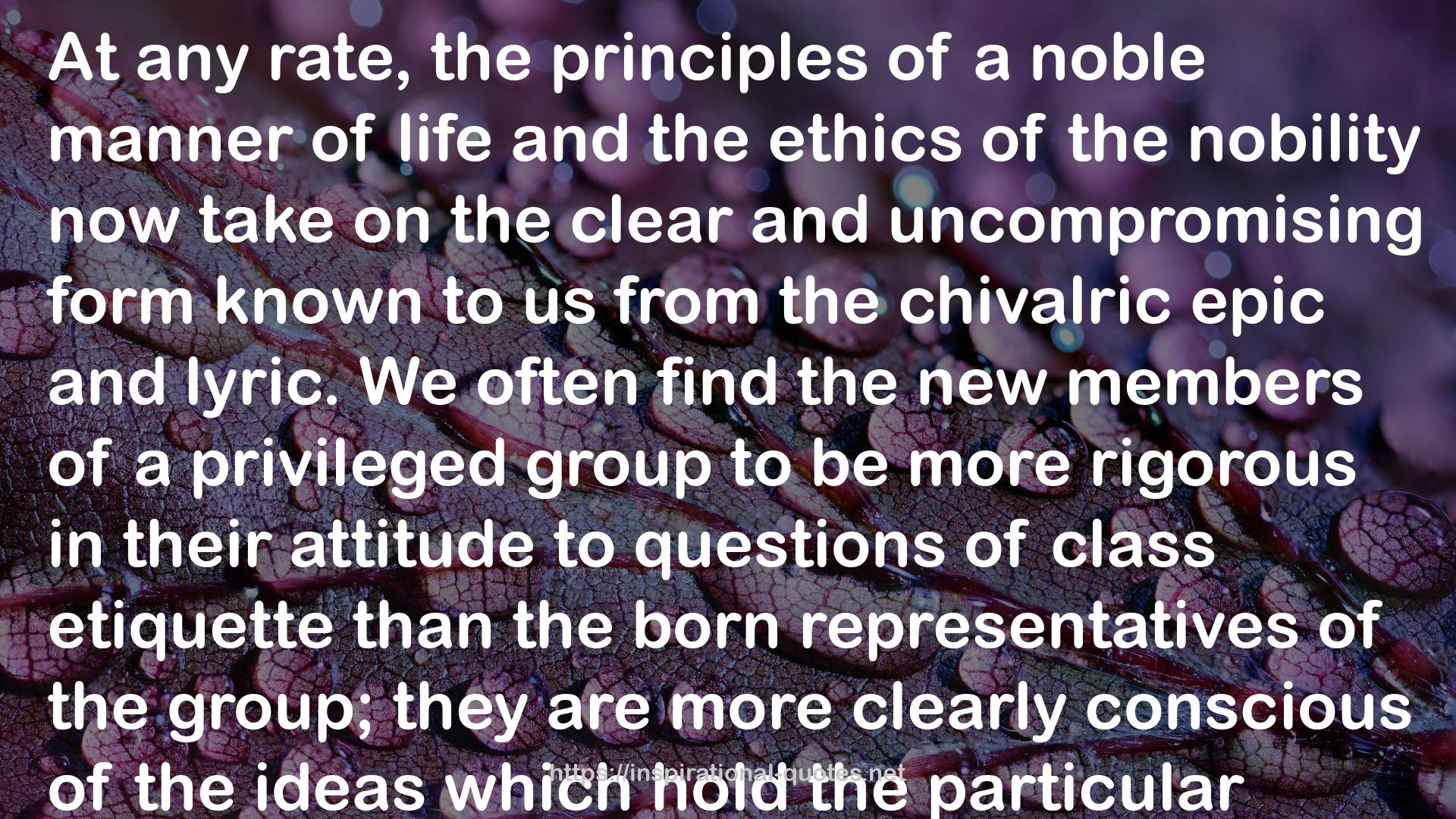" At any rate, the principles of a noble manner of life and the ethics of the nobility now take on the clear and uncompromising form known to us from the chivalric epic and lyric. We often find the new members of a privileged group to be more rigorous in their attitude to questions of class etiquette than the born representatives of the group; they are more clearly conscious of the ideas which hold the particular group together and distinguish it from other groups than are men who grew up in those ideas. This is a well-known and often-repeated feature of social history; the novus homo is always inclined to over-compensate for his sense of inferiority and to emphasize the moral qualifications required for the privileges which he enjoys. In the present case, too, we find that the knights who have risen from the ranks of the retainers are stricter and more intolerant in matters of honour than the old aristocrats by birth. What seems to the latter a matter of course, something that could hardly be otherwise than what it is, appears to the newly ennobled an achievement and a problem. The feeling of belonging to the governing class, one of which the old nobility had scarcely been conscious, is for them a great new experience. Where the old-style aristocrat acts instinctively and makes no pretensions about it, the knight finds himself faced with a special task of difficulty, an opportunity for heroic action, a need to surpass himself—in fact to do something extraordinary and unnatural. In matters in which a born grand seigneur takes no trouble to distinguish himself from the rest of mankind, the new knight requires of his peers that they should at all costs show themselves different from ordinary mortals. "
― Arnold Hauser , The Social History of Art, Volume 1: From Prehistoric Times to the Middle Ages
